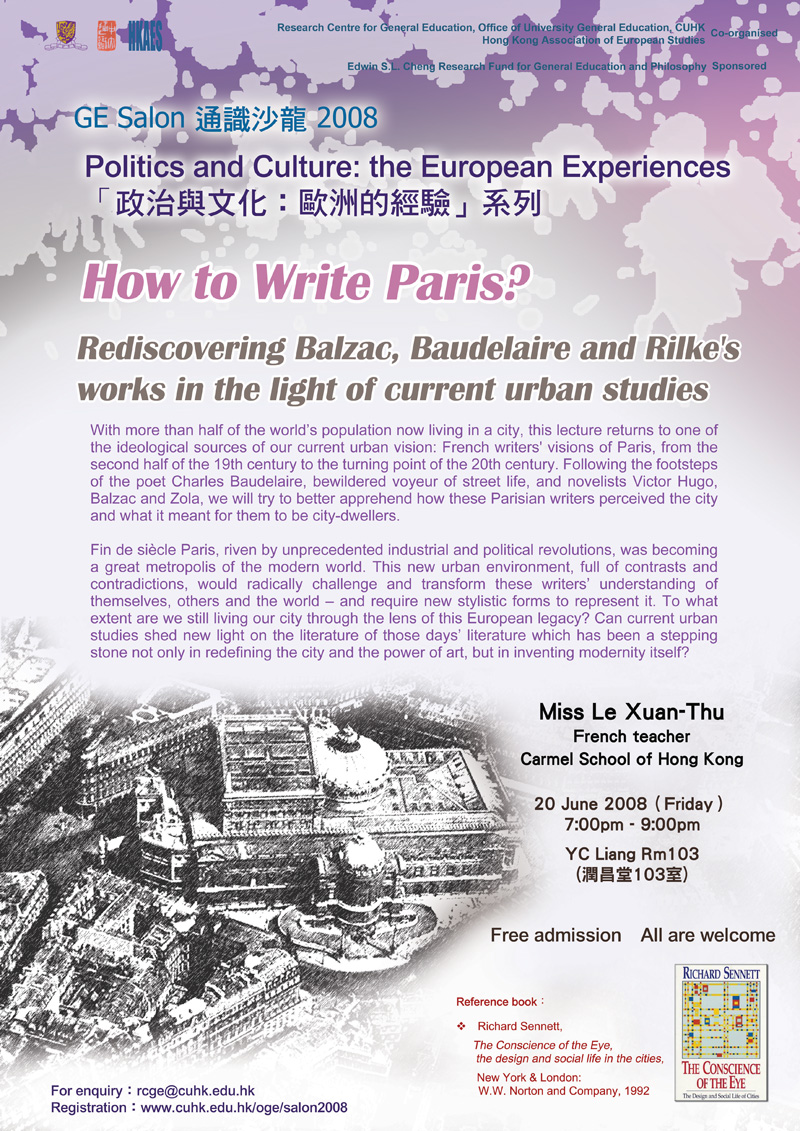How to Write Paris?
Speaker: Le Xuan-Thu
Synopsis
With more half the world’s population now living in a city, this lecture returns to one of the ideological sources of our current urban vision: French writers’ visions of Paris, from the second half of the 19th century to the turning point of the 20th century. Following the footsteps of the poet Charles Baudelaire, bewildered voyeur of street life, and novelists Victor Hugo, Balzac and Zola, we will try to better apprehend how these Parisian writers perceived the city and what it meant for them to be city-dwellers.
Fin de siècle Paris, riven by unprecedented industrial and political revolutions, was becoming a great metropolis of the modern world. This new urban environment, full of contrasts and contradictions, would radically challenge and transform these writers’ understanding of themselves, others and the world – and require new stylistic forms to represent it. To what extent are we still living our city through the lens of this European legacy? Can current urban studies shed new light on the literature of those days – literature which has been a stepping stone not only in redefining the city and the power of art, but in inventing modernity itself?
Selected book: Richard Sennett, The Conscience of the Eye, the design and social life in the cities. New York & London: W.W. Norton and Company, 1992


